Mental Health Resources

Rhode Island Behavioral Health Services for Children and Youth
Explore a comprehensive list of resources and tips gathered from Rhode Island clinicians, behavioral health professionals, and caregivers — designed to support you if you’re having trouble finding or providing help for your child during a difficult time.
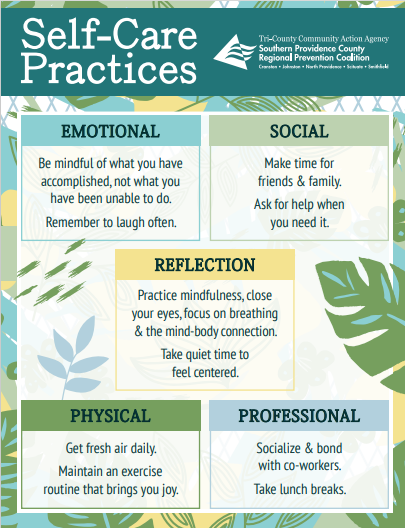
Self-care is taking steps to tend to your physical and emotional health needs to the best of your ability. Practice these as often as possible.

If you or someone you know needs support now, call or text 988 or chat 988Lifeline.org. 988 connects you with a trained crisis counselor who can help.

Do you Know the Five Signs?
If you or someone you love is going through a mental health or substance use crisis, there is information, there is compassion. There is help. Call 401-414-LINK (5465). You can also view this video to better understand the Five Signs.
Local Support Services for Mental Health Services, Suicide Prevention, Substance Use Disorders & Social Supports
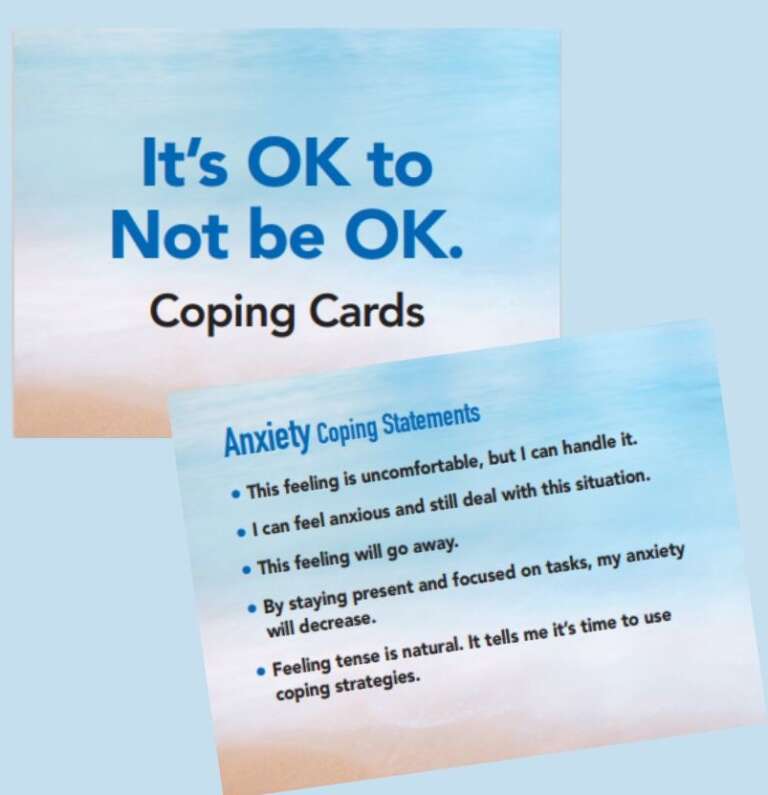
Mental Health Coping Cards
This set of nine cards offer helpful coping techniques to help with a variety of conditions such as Anxiety, Fear, Phobias, Feelings of Being Overwhelmed, Anger Management and more.
Click HERE to view cards

5-4-3-2-1 - Reduce Anxiety for Adults and Young Adults
When anxiety threatens our peace of mind, it can be difficult to stay in the moment. But one mindfulness tool used by multiple psychologists has the potential to pull our brains free from the anxiety by grounding us in the present.
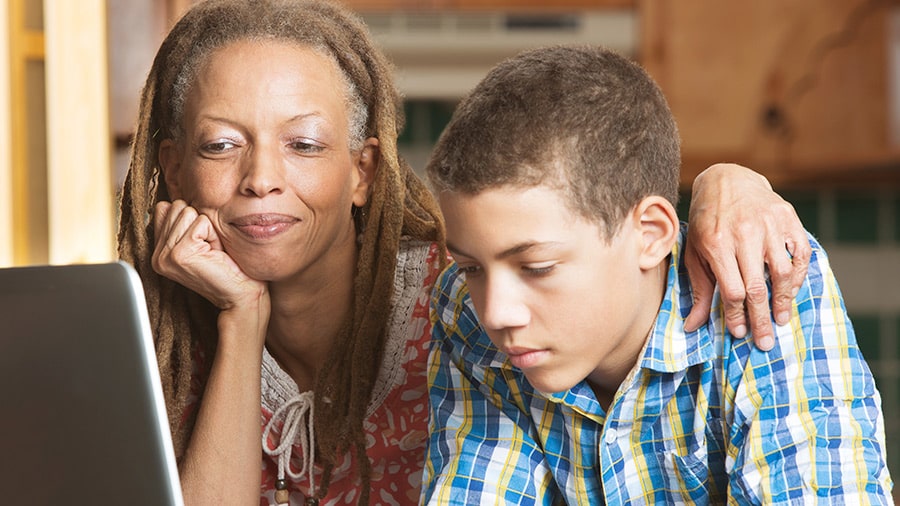
Parents, Raising Teens Can Be Tough. Communication is the Key.
School counselor Ruth Oelrich emphasizes that as children grow into teens, parents should shift from guiding to collaborating. This change fosters better communication, understanding, and connection. Watch the video to learn strategies to help parents support their adolescent’s growth and strengthen relationships.
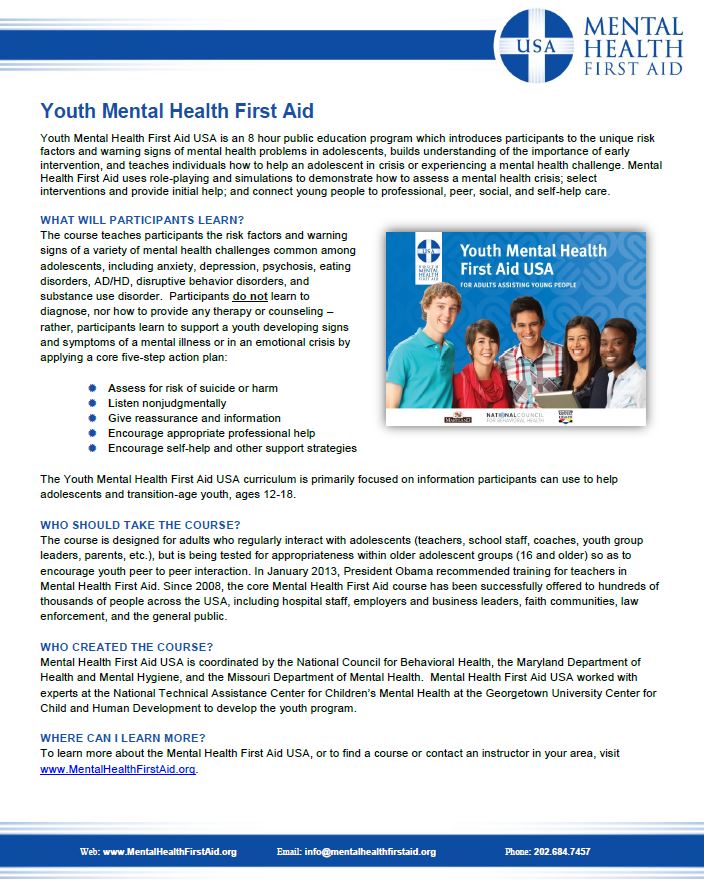
Since 2018 the SPC Regional Prevention Coalition has provided training for over 170 Southern Providence community members.
Youth Mental Health First Aid is designed to teach parents, family members, caregivers, teachers, school staff, peers, neighbors, health and human services workers, and other caring citizens how to help an adolescent (age 12-18) who is experiencing a mental health or addictions challenge or is in crisis. Youth Mental Health First Aid is primarily designed for adults who regularly interact with young people. The course introduces common mental health challenges for youth, reviews typical adolescent development, and teaches a 5-step action plan for how to help young people in both crisis and non-crisis situations. Topics covered include anxiety, depression, substance use, disorders in which psychosis may occur, disruptive behavior disorders (including AD/HD), and eating disorders.
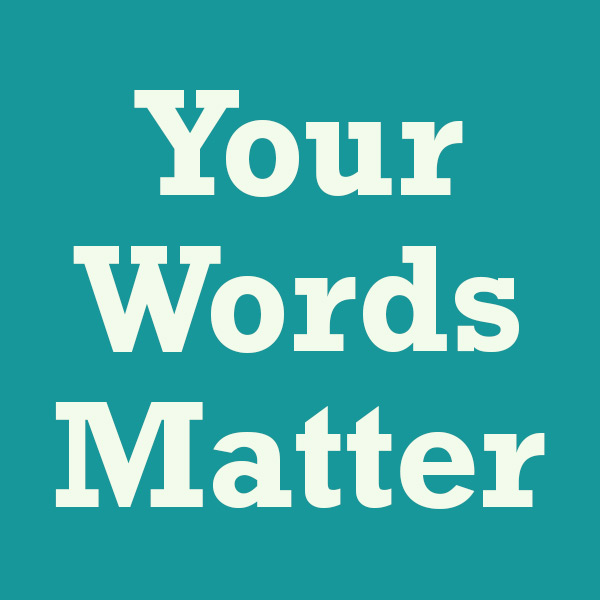
Words Matter - Terms to Use and Avoid When Talking About Addiction
This web page offers background information and tips for providers to keep in mind while using person-first language, as well as terms to avoid to reduce stigma and negative bias when discussing addiction. Although some language that may be considered stigmatizing is commonly used within social communities of people who struggle with substance use disorders (SUDs), clinicians can show leadership in how language can destigmatize the disease of addiction.


